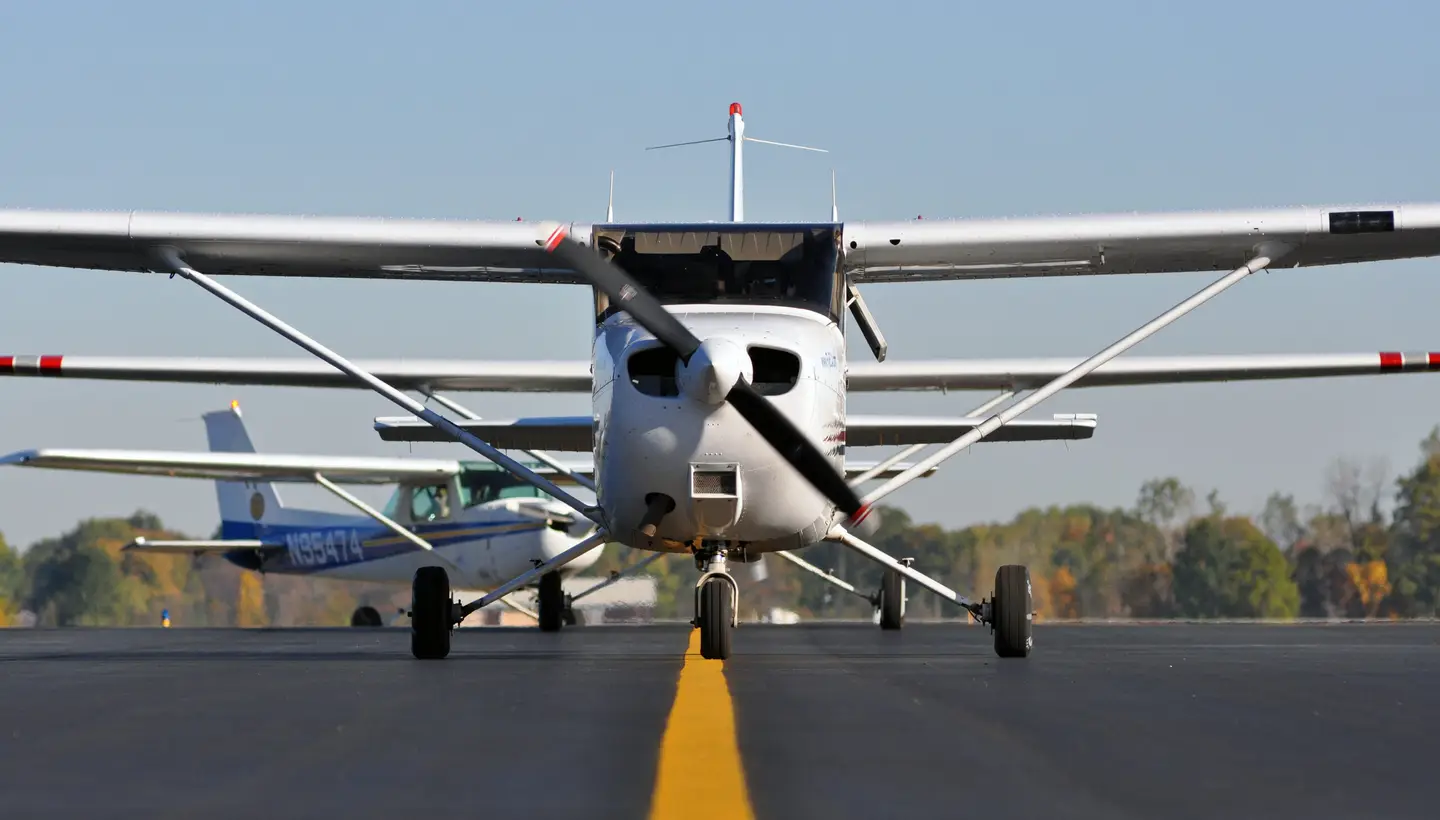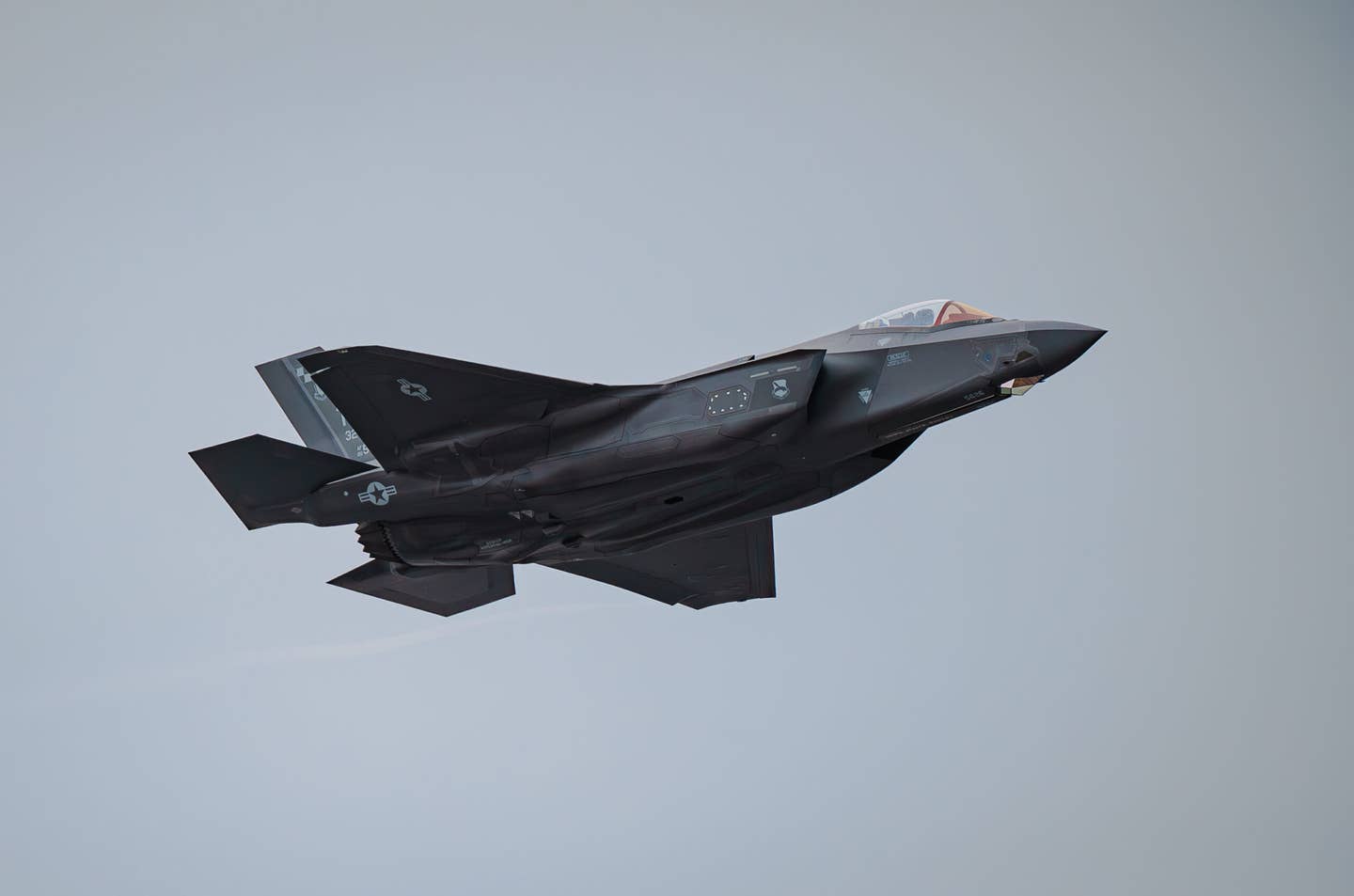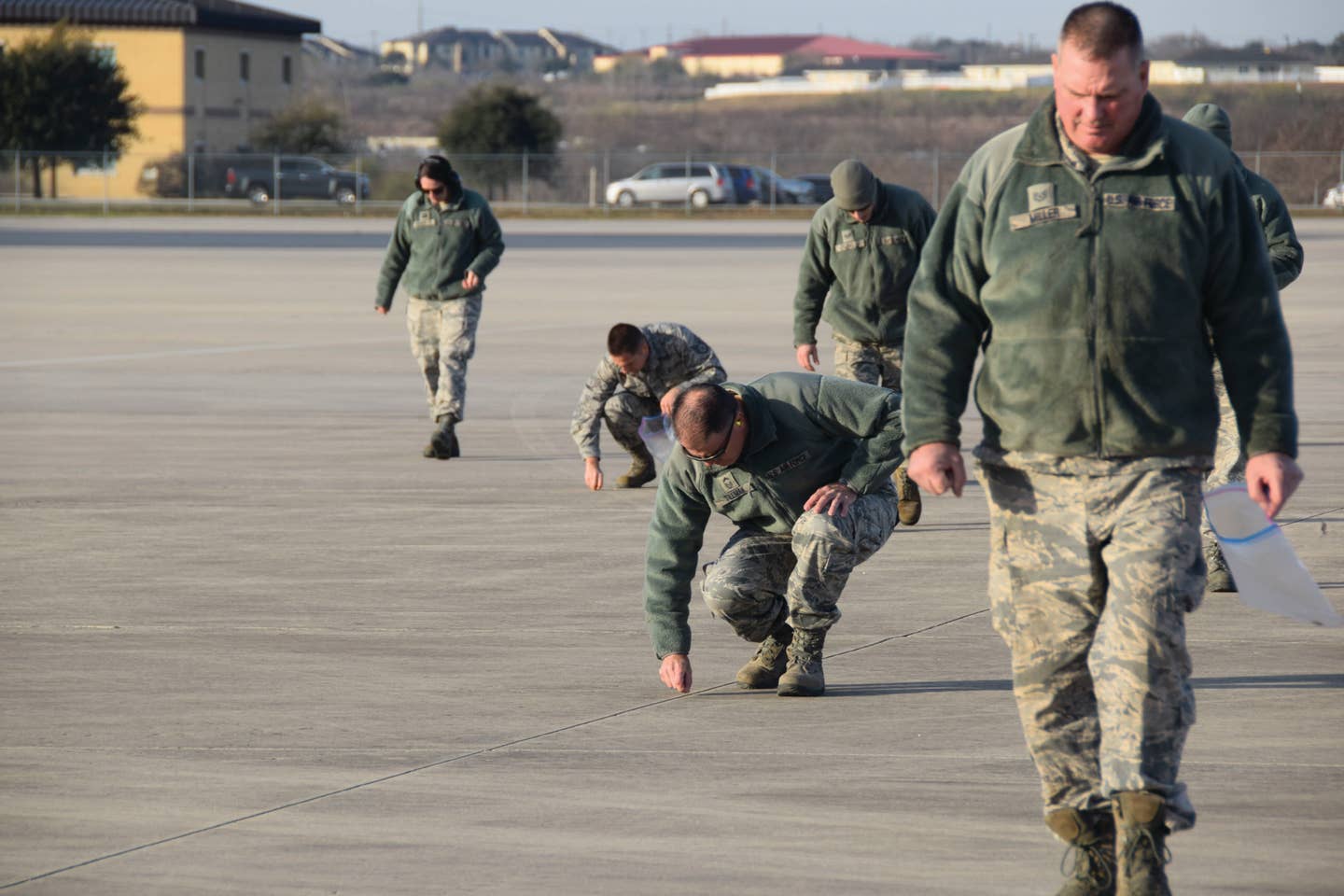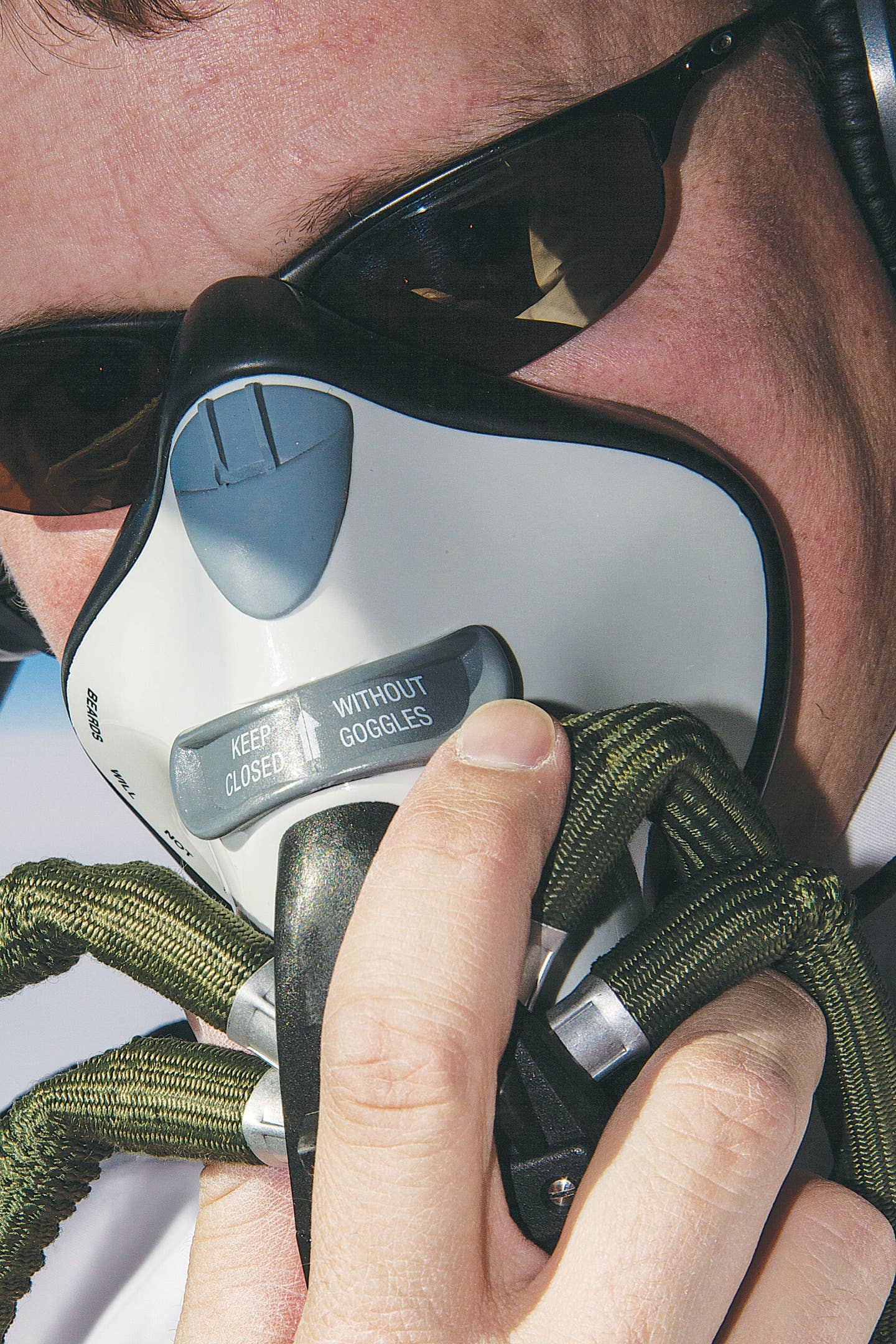
ColumnArt_Web
Seventeen years ago, I stood inside an old B-24 airplane at the Asheville, North Carolina, airport and watched, transfixed, as a middle-aged man connected with a father he'd never known, just by sitting in the cockpit of the plane his father had flown … and died in … during World War II. It was one of those unexpected moments of magic that occasionally happen, in flying and in life, and it remains one of my most cherished and powerful aviation memories.
The experience was so powerful, in fact, that I wrote a story about connections and chasms between fathers and sons, and the ability of airplanes to sometimes bridge that divide. And then I tried for seven years, without success, to get an editor to publish it. But 10 years ago this month, the story finally found a home in the pages of Flying magazine -- and it's probably not an exaggeration to say that, in the process, it found me a home here, as well. (That original column, called "Like Father, Like Son," can be read by clicking here.)
I received quite a bit of mail about that column, all of which I saved for some future rainy day when I'm old and feeling unsure about life or humanity. Because clearly, the essay hit a nerve. A tidal wave of dreams, agonies, memories and, above all, love … came pouring back in letters written by both fathers and sons, some of whom hadn't spoken to each other in years. We might express ourselves differently, but don't ever let anyone tell you that men don't feel emotions as deeply as women. I have the counter-proof in a very thick file in my office closet.
I still get the occasional piece of mail, in fact, from people asking for copies of that column. But this past year, I began getting a different kind of letter. They were pleas, either stated or unstated, to have their father's story told … while there was still time. To tell things everyday and yet extraordinary about a man they'd obviously known all their lives, but had either lost, or were in danger of losing. And perhaps were only beginning to really understand and appreciate.
Some asked if I could write a column about their fathers. Others just told me their story, or asked how they might get their fathers' stories recorded, so the stories -- and all the life they contained -- didn't "die with him." The letters have warmed and broken my heart, all at the same time.
A pilot named Jeff, in Colorado, wrote me about how his father had bought him his first airplane flight when he was 11, and about flights he and his dad later took together over various historic places in California. Jeff said his father "had a thing" for California history and gave inflight seminars to his son about the places they saw. "It's amazing," he wrote, "the stuff we just built highways over!" He also wrote, with great amusement, of handing the controls over to his father at one point and discovering that his father's tales of flying in his youth evidently didn't include actually learning how to fly a plane himself. "The next thing I know, we're in a darn-near 90-degree bank, and there he is, holding on to that yoke for dear life!" Jeff recalled. The laughter pealed off the page, no sound effects required.
Why was he telling me all that? Because I'd once written a column about, as Jeff put it, "sharing the sky with family and how they could really see who they'd raised." Jeff went on to say he'd called his dad to tell him about the column. "I think it was the one time I actually told him I loved him, except for the night before he died," he said. There was a pause. A paragraph break. Then the letter continued.
"The day my dad died," Jeff wrote, "I brought my pilot logbook, which he bought me at that first flying lesson, and a McCoy 35 model airplane engine from his childhood of model building (rebuilt by me). He flipped the prop on that old motor with a weak hand and looked at my logbook like he was 10 years old. The next day, my dad was gone."
There was no request to publish anything; no action Jeff wanted me to take. Just a story he wanted me to know, or perhaps just had a need to tell, to someone who might understand.
| ** Shown above, Jack L. Kuhns in the Stearman biplane he loved flying. Below, Jack M. Kuhns with his father.** |
A month later, there was another letter. This one by a man named Jack M. Kuhns, whose father, Jack L. Kuhns, had been a flight instructor at Bowman Field in Louisville, Kentucky, for many years. Jack Kuhns wasn't a famous pilot, although he'd given some dual instruction to a young Gene Soucy, owned a pristine Stearman biplane, and had been one of the main organizers of a record-setting EAA Young Eagles event at Bowman, when a group of 40 pilots gave over 650 rides in a single day.
But to his son, he was still a hero worth writing about. "He has contributed to aviation from several different fronts and is currently in rapidly declining health," Jack wrote. "I guess like other proud children, I would love to see my father recognized in words."
I set the letter aside, thinking I might do something with it at some point. After all, I'd learned to fly in Louisville, Kentucky, myself. But by the time I pulled the letter out again, earlier this month, it was too late. Jack L. Kuhns died of Lou Gehrig's disease last October. So he will never get to read this. But just for the record, because it matters, let me tell you a few things I've found out about him in the last few weeks.
Jack Kuhns was a railroad man. Served as a ship's machinist in WWII, then went to work for the American Locomotive Company. Soon after he was transferred to Louisville, he learned to fly, became an instructor, and flight instructed on the side for the rest of his life. Jack was known for hopping rides in a pristine white and red Stearman that he first flew with an old pilot who'd lost his medical, and eventually bought, himself. Although he advertised rides in the Stearman for a charge, he told his son, "If they'd just show up, I'd fly them for free. [Advertising and charging] is just a way of getting people out to the airport. Seems people think they need to pay for things." And indeed, Jack was known for inviting anyone hanging around to go along, if he was going flying.
In 2000, Jack and some of his pilot friends also formed a flying club at Bowman called the "Bowman Eagles," which specialized in tailwheel flying and instruction. "For the past 20 years in Louisville, if you wanted to learn to fly a tailwheel, you'd give Jack a call," remembered Colin Soucy, who flies the EAA's Ford Tri-Motor when he's not flying airliners. "Everyone thought he was a great tailwheel instructor, but he also made himself available to teach anyone who wanted to fly taildraggers."
There are two overriding traits that people seem to remember about Jack Kuhns. One, his love of airplanes, and his passion for sharing that love with others. And two, as his friend Howard Edwards put it, "I've known Jack since 1951. And I never heard him say anything bad about anybody."
Jack L. Kuhns might not have been famous beyond the world of Bowman Field. But you don't have to be famous for your life to matter. My friend Jim Fallows, a national correspondent for The Atlantic Monthly magazine, is a pilot and aviation enthusiast, as well as a world-class journalist and expert on national and foreign affairs -- which is normally what he writes about. But visitors to the Atlantic's website last fall found a very different kind of post on his blog, over the course of a couple of months. Jim's dad was dying. And so in between thoughtful pieces on the election and economic developments in China, there were photos and stories of a man who'd left college early to become a doctor in WWII, who loved horses, tennis and camping, and who went out of his way to help his patients and their families. (To read all of Fallows' poignant posts, go to jamesfallows.theatlantic.com/archives/tiger_jim/.)
Why had such a serious journalist chosen to open up publicly about such personal material? "I live among people who spend their careers competing for the world's notice," Jim said, when I asked him. "My mom and dad, both extremely talented in different ways, poured all of their effort and attention and care into our little hometown. They left it an immeasurably better place, as everyone there knows. But somehow I wanted other people to know, too."
That might sound trite, to someone in their 20s. When we're young, we all (or at least most of us) think that -- unlike our boring parents -- we're going to be rock stars and change the world, single-handedly, in a dazzling blaze of glory. But as we age, we gain a little better appreciation for what an achievement it is to even hit the basics in any kind of balanced way … to find a career we like, be a good person, friend, parent, spouse and community member, pay the mortgage, get enough sleep, and keep from being inundated by the "to do" lists looming over us. Let alone be an informed citizen of the world, or find the time to watch our kids' soccer games, listen to their stories, take them flying, or be there for them when they're sick or have nightmares in the middle of the night.
We also learn that the world is tougher to impress or move than we once thought … and gets changed in far smaller ways than we once imagined. Fame, we realize, matters far less than teaching a teenager to fly. Or volunteering to help a young family build or buy a home. Or making a house call for a sick kid in the middle of the night. Or taking the time to share ourselves with others, even when 10 other things are screaming at us to get done.
And slowly, as we learn all these things, and pass through the ages our parents were when we were growing up, we start to get a better understanding and appreciation of the people they were, the burdens they carried, and some of the contributions they made. But by the time we do, the window for trying to do anything about it is often closing, or already gone. And it's not okay.
With one hand, we try to keep them from leaving us -- ideally, ever, but at least until we make sure they know how proud we are of them; how much we really do love them and now appreciate all they tried to do. And with the other, we search for some way to keep a piece of them alive in the world; to shout their names from the mountaintops in defiance of the idea that you have to be famous for your life to matter. Ten years ago, I wrote about sons who desperately needed to know their fathers were proud of them, but didn't know how to ask. But now, I think there are an equal number whose pain comes from having realized just how proud they are of their fathers, with no way of letting them know.
So. Since the world gets changed in little ways, we've set up a page on the Flying website* where anyone can write about their parents -- still living, or alive in memory only. Not War and Peace-length dissertations, perhaps, but photos, quips, memories, tales of being upside down and sideways … the things that made their lives matter, or that keep their spirit alive in the world. It might not be the front page of The New York Times, but … it's at least a way to have that voice from the mountaintop heard in the world.
*Visit forums.flyingmag.com and click on the Remembrances board to tell your story.
Note: For anyone whose parent served in the military, there is also a national program called the Veterans History Project, begun in 2000, which is collecting the stories of veterans and archiving them for posterity in the Library of Congress. For more information, go to loc.gov/vets. If anyone knows of any other programs to record people's stories, please post it on the Remembrances board on forums.flyingmag.com.

Sign-up for newsletters & special offers!
Get the latest FLYING stories & special offers delivered directly to your inbox






